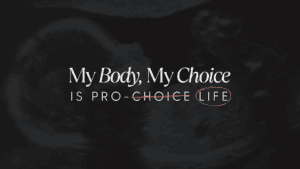Runners were clustered in semicircles, stretching and laughing. I hovered between groups, unsure where to stand.
A girl bent down to tie her laces beside me.
She flashed a quick grin at me. “It’s a million degrees. Are we crazy?”
I attempted a confident smile. “No one told me that running club was actually the try-not-to-have-a-heat-stroke club.”
She laughed as she stood up. “Exactly.”
I hesitated, mustering the courage to introduce myself . . . but she was already jogging away. I wanted to ask if I could run with her, but instead I knelt down to double-knot my laces.
Come on, be brave, I told myself.
An anxious voice piped up inside me: But what if we start becoming friends, and things go badly . . . again?
A few months earlier, a friend had broken things off with me, and her accusation echoed in my memory: You hurt my feelings, and I’m done with this friendship.
I felt a fresh wave of guilt: How had I not realized I was hurting her? Then a powerful ache followed: Why hadn’t she given me a chance to change? Why did she just ditch the friendship—and me?
I had joined the running club to make new friends, but I felt held back by my old mistake.
After a friendship breakup, painful memories and difficult feelings such as regret, self-doubt and fear may haunt us. How can we heal and find the courage to seek out new friendships?
Moving past hurt
Friendships fall apart for different reasons—sometimes it’s our fault, and sometimes it’s the other person’s fault. In my experience, both friends usually share some responsibility.
When my friend broke off our friendship because I had unknowingly hurt her feelings, the first thing I had to do was work through my feelings with God. The apostle John wrote, “If we confess our sins, [God] is faithful and just to forgive us our sins” (1 John 1:9). Unfortunately, my friend refused to forgive me, but I could still receive God’s forgiveness.
I also needed to forgive my friend for hurting me. She had stuffed her feelings and then refused to hear my apology or give me a chance to change. I was tempted to feel bitter, but I couldn’t ignore Jesus’ words: “If you forgive others their trespasses, your heavenly Father will also forgive you, but if you do not forgive others their trespasses, neither will your Father forgive your trespasses” (Matthew 6:14-15). I knelt beside my bed, asking God to help me forgive.
If you’ve been hurt in a friendship, prayer is a great way to begin moving past the hurt toward forgiveness, healing and peace.
New friendships
When we’ve lost a friendship, the idea of trying to make new friends may feel risky and downright scary. It might feel safer to stay lonely. The truth is, meeting new people takes courage. Inviting new friends into our lives requires risk. But making friends doesn’t have to be as intimidating as we think. We just have to be a little brave—courageous enough to take two small steps.
Step 1: Try new things
Wouldn’t it be amazing if God dropped a new bestie on your doorstep the moment you needed her, with matching friendship bracelets in hand? No need to search. I found her for you. But finding new friends takes effort on our part: We must get out there where people are.
If you need a fresh start in friendship, why not take the small step of trying out some new activities or events? New scenes will give you a chance to meet people outside your usual crowd. I joined a running club. What sounds fun to you? The options are endless: writing for the school paper, joining a ski club, singing in the chorus, volunteering, visiting an acquaintance’s youth group or simply attending plays or athletic events at school. Whenever we spend time around new people, we give God a chance to work—and we give ourselves a chance to find friends.
What sounds fun to me?
Step 2: Smile and say hi
The summer before I started high school, anxiety started creeping over me. Its icy tentacles gave me goose bumps even in the Florida heat. One afternoon, I plopped down beside my mom on the creaky bench swing in our backyard. “Mom, the high school is ginormous. I don’t even know how to start making friends.”
“I felt the same way my freshman year,” Mom said, “and at first I was a little lonely. But one day I made a small decision that changed everything: I decided to smile and say hi to everyone I could.”
I slid Mom a squinty-eyed look. “You just smiled and started saying hi? To everyone? Didn’t people think you were weird?”
“Just the opposite.” Mom beamed. “Everyone started smiling and saying hi back to me. Within a few weeks, I had met tons of new people, and I was on my way to making new friends!”
I nudged the ground with my foot, making the swing groan forward as I pondered Mom’s experience. Smiling. Saying hi. Just being friendly. Now those felt like things I could do.
When school started, I forced bright smiles past my nerves and pushed squeaky hellos through my dry throat. Sure enough, Mom was right: Lots of people smiled back, and I quickly found people I could talk to in all my classes.
If you’ve been wanting to find new friends, why not give this simple step a try? Make a point to smile and say hello wherever you go. Then watch what happens.
What scares me the most about smiling and saying hello?
Overcoming hypersensitivity
Let’s say you’ve been brave and shown up at new activities, been friendly to new people and finally found a few potential friends. (Insert happy dance here!) You start hanging out with them—ice cream, movies, shopping—and you’re feeling hopeful. Maybe we’ll be friends. Things are starting off strong, but as you spend more time together, you discover that you have a few new insecurities and sensitivities thanks to the hurt in your past.
When I was a sophomore in high school, I went out to dinner with a group of kids from church, and one of the guys teased me. It was an offhand comment, nothing mean, but instead of laughing it off, I got quiet.
“That hurt my feelings,” I said.
“Oh, sorry,” he replied, raising an eyebrow ever so slowly. That raised eyebrow seemed to say, This girl takes everything too seriously.
A cloud of “awkward” descended, and I immediately realized my mistake. I should have let the comment slide.
It wasn’t a big deal.
That day I saw how insecurity and hypersensitivity can be a double-trouble combination that hinders friendships. It’s not that we can’t be honest when friends hurt us, and we certainly shouldn’t ignore negative patterns in friendships. But some of us are extra sensitive people, and our feelings get hurt a lot.
Practical Wisdom
I’m thankful that the Bible offers practical wisdom to help us find a healthy balance. The apostle Peter wrote, “Love covers a multitude of sins” (1 Peter 4:8), and Solomon wrote, “Good sense makes one slow to anger, and it is his glory to overlook an offense” (Proverbs 19:11).
Mistakes and sins come up even in healthy relationships. No friendship is perfect, and everyone has “off” moments. Sometimes love means overlooking friends’ minor missteps, covering them in a blanket of forgiveness. Sometimes love means showing friends the kind of grace we need when we fall short.
If you struggle with being overly sensitive like I do, the next time you feel hurt, I encourage you to call a mental time-out. Ask yourself, Is this feeling valid, something I need to address with my friend? Or is it possible I’m misinterpreting the situation or responding in a hypersensitive way?
Here’s what a mental time-out looks like for me:
I wave hi to a friend at church. She smiles back, but her smile is strained. The insecure and oversensitive part of me kicks into overdrive. Oh no, she’s mad. What did I do? Is our friendship in trouble?
My thoughts start spiraling. . . .
Wait.
I pause. Take a breath. Say a prayer.
And I invite logic to join my internal conversation.
The logical side of my brain (also known as the “Maybe it’s not all about me” part) speaks up: Maybe she’s having a bad day. Instead of torturing myself with what-ifs, why don’t I ask her how she’s doing?
Thanking my logical brain for the helpful suggestion, I find my friend and say, “How’s your day going?”
Her face crumples—she’s fighting tears. “I got some bad news this morning. Can you pray for me?”
“Of course.”
We hug, and I walk away with my heart full of concern for my friend instead of fear for myself.
See how that works? When our train of thought takes a detour down a supersensitive, fear-based track, we can pump the brakes. We can take a moment to question our automatic assumptions, lining them up beside truth and logic. With practice, we’ll become less sensitive and fearful and more in tune with others’ feelings. In the end, we’ll become even better friends to others.
The right fit
We all experience disappointment and loss in friendship, but those hurts don’t have to define us. Our Father is the God
of second chances—even a million chances—and with His help, we can heal and start fresh.
Making new friends can take time. It’s a little like hunting for the perfect pair of jeans: Sometimes we have to try on a lot of jeans before we find a keeper. You might have to “try on” different friendships for a while to find out if you’re a good fit for each other.
Some friendships fit right away; some we grow into over time; and others never quite work. Not every acquaintance will turn into a friend, and not every casual friend will turn into a good friend—but that’s OK. We need friendships of all kinds.
Yes, we need close friends who share our deep-heart places, but we also need laugh-at-the-lunch-table friends, sweat-together-at-practice friends and thrifting-on-weekends friends. Each is special, a gift.
As you take your healing heart out into the world of friendship, hold tightly to the hand of your Friend in heaven. Every step, no matter how small, is a victory—and God is with you all the way.



















